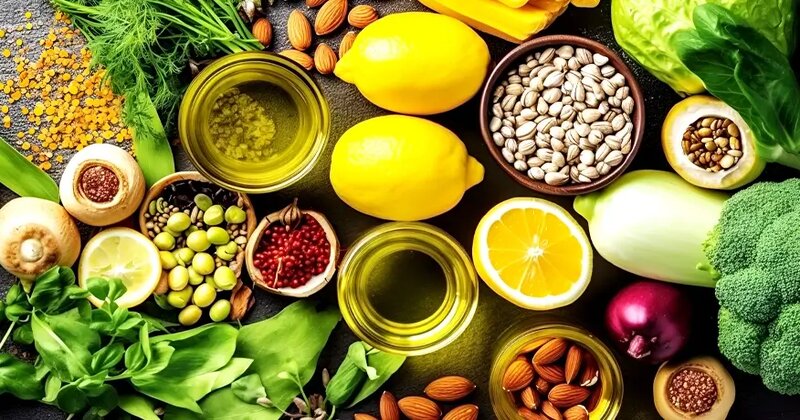
Maintaining liver health through the right diet is crucial, as the liver plays a vital role in detoxification, digestion, and metabolism. Here’s a guide to a liver-friendly diet:
1. Fruits and Vegetables
– Cruciferous Vegetables: Broccoli, cauliflower, cabbage, and Brussels sprouts boost liver detoxification enzymes.
– Leafy Greens: Spinach, kale, and arugula are rich in antioxidants and help neutralize harmful substances.
– Citrus Fruits: Lemons, limes, oranges, and grapefruits contain vitamin C and antioxidants that support liver detox.
– Berries: Blueberries and cranberries are packed with antioxidants that protect the liver from oxidative stress.
2. Healthy Fats
– Omega-3 Fatty Acids: Fatty fish like salmon, sardines, and flaxseeds reduce liver inflammation and fat accumulation.
– Olive Oil: Rich in healthy fats and antioxidants, olive oil helps reduce liver fat and improve enzyme levels.
– Nuts: Almonds, walnuts, and sunflower seeds provide healthy fats and vitamin E, promoting liver health.
3. Whole Grains
– Brown Rice, Oats, Quinoa: These are high in fiber, which supports digestion and reduces liver fat accumulation by improving insulin sensitivity.
4. Lean Proteins
– Fish, Chicken, and Turkey: Lean sources of protein are easier for the liver to process than fatty meats.
– Plant-Based Proteins: Beans, lentils, and tofu provide protein without excessive fat.
5. Hydration
– Water: Staying hydrated is essential for liver function as it aids in detoxification processes.
– Green Tea: Contains catechins, powerful antioxidants that improve liver function and reduce fat in the liver.
6. Herbs and Spices
– Turmeric: Known for its anti-inflammatory properties, turmeric helps reduce liver damage.
– Garlic: Enhances liver detox enzymes and reduces liver fat.
– Ginger: Helps with digestion and reduces liver inflammation.
7. Foods to Avoid
– Alcohol: The primary cause of liver damage, alcohol should be limited or avoided.
– Sugary Foods and Drinks: Excess sugar contributes to fat accumulation in the liver.
– Fried and Processed Foods: High in unhealthy fats that increase the risk of fatty liver disease.
– Excessive Salt: High salt intake can lead to liver scarring, so it’s essential to limit it.
A balanced diet, rich in whole, unprocessed foods, and limiting harmful substances, can help keep the liver functioning optimally.

Post Your Comments